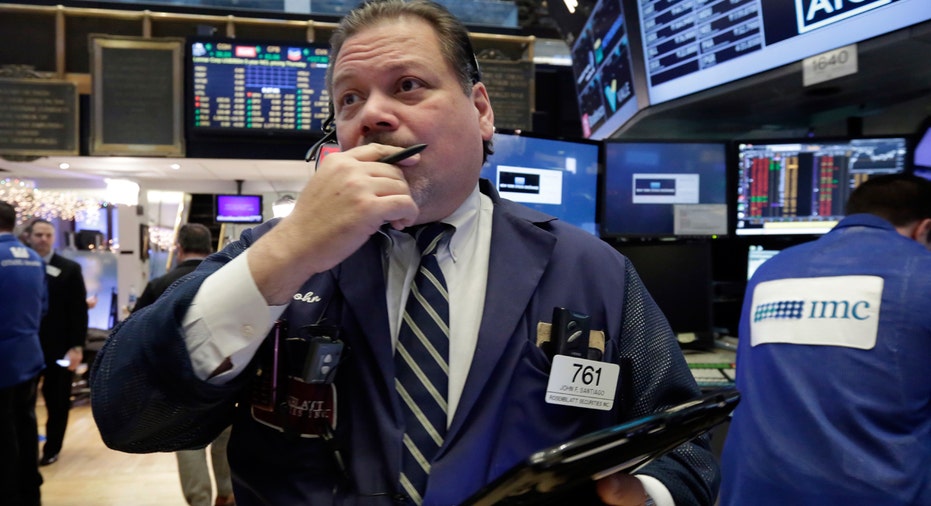Wall St falls on oil tumble, consumer sector and Fed worries

U.S. stocks closed lower on Tuesday as a sharp drop in oil prices hurt energy stocks and retail stocks were pulled down by concerns about Amazon.com's plan to boost its apparel business, while investors also worried about future Federal Reserve rate hikes.
Healthcare was the brightest spot in stocks with a 0.3 percent rise while the consumer discretionary index showed a 1.25 percent drop in line with the energy index decline.
Oil prices fell about 2 percent after news of increases in supply by several key producers, a trend that has undermined attempts by OPEC and other producers to support the market through reduced output.
"People really thought $45 to $55 was kind of the range of oil, but it is getting weaker and weaker and U.S. producers are getting more and more efficient," said Ken Polcari, Director of the NYSE floor division at O’Neil Securities in New York.
The market deepened its losses heading into the close after comments by Dallas Federal Reserve President Robert Kaplan appeared to add to investor unease about the Fed's projected pace of monetary policy tightening.
Kaplan said technology and globalization is holding down U.S. inflation, which suggested that low inflation might linger, said Bucky Hellwig, senior vice president at BB&T Wealth Management in Birmingham, Alabama.
"Today's action reflects growing investor concern about the Fed's designated path of tightening versus what the market is saying, exemplified in the fed funds futures market and the lower yield and the lower inflation reports," said Hellwig.
Earlier, Boston Fed President Eric Rosengren said the era of low interest rates in the United States and elsewhere poses financial stability risks and that central bankers must factor such concerns into their decision-making.
The Dow Jones Industrial Average was down 61.85 points, or 0.29 percent, to 21,467.14, the S&P 500 had lost 16.43 points, or 0.67 percent, to 2,437.03 and the Nasdaq Composite had dropped 50.98 points, or 0.82 percent, to 6,188.03.
Some investors were holding back ahead of a congressional election in Atlanta, according to Jeffrey Saut, chief investment strategist at Raymond James Financial in St. Petersburg, Florida.
He sees the costliest U.S. congressional race in history - between Democrat Jon Ossoff and Republican Karen Handel - as a key political test for President Donald Trump's pro-business agenda.
Nasdaq's biotechnology index rose 1.3 percent after a 2.5 percent jump the previous day.
The S&P technology sector fell 0.8 percent, with the biggest drags from Microsoft and Apple.
Declining issues outnumbered advancing ones on the NYSE by a 2.48-to-1 ratio; on Nasdaq, a 2.28-to-1 ratio favored decliners.
The S&P 500 posted 49 new 52-week highs and 10 new lows; the Nasdaq Composite recorded 99 new highs and 87 new lows.
About 7.1 billion shares traded on U.S. exchanges compared with the 6.86 billion average for the last 20 sessions.
(By Sinead Carew; Additional reporting by Chuck Mikolajczak in New York, Tanya Agrawal in Bengaluru; Editing by Saumyadeb Chakrabarty and Nick Zieminski)



















